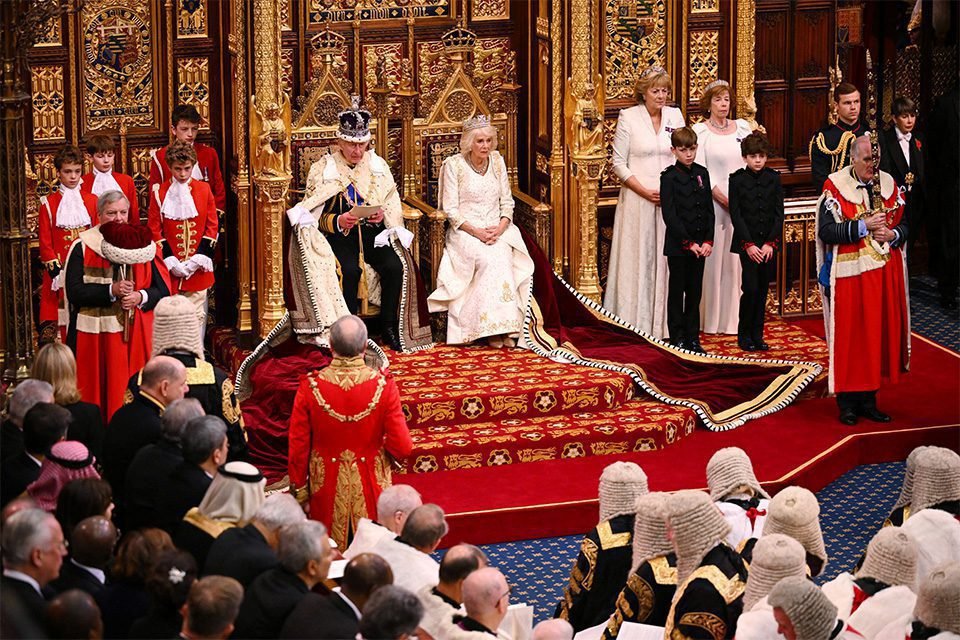In a ceremony rich with tradition and symbolic pageantry, King Charles recently delivered the King’s Speech, outlining Labour’s ambitious legislative agenda under Prime Minister Keir Starmer’s leadership. The speech, which featured a staggering 39 bills, marks a significant departure from previous Conservative governments and has sparked a flurry of reactions from across the political spectrum.
Overview of Labour’s Legislative Agenda
Labour’s legislative agenda, unveiled in the King’s Speech, paints a broad and ambitious vision for governance in the United Kingdom. At its core are measures aimed at revitalizing the economy, addressing social inequalities, and tackling pressing environmental challenges. Here’s a snapshot of key initiatives:
- Economic Revival: Labour aims to stimulate economic growth through measures such as rewriting planning rules to facilitate infrastructure development and establishing a National Wealth Fund to boost investment.
- Social Reforms: Significant social reforms include tighter regulations on corporations, protections for renters against unfair practices, and reforms to workers’ rights, including a ban on certain “zero-hours” contracts and minimum wage increases.
- Environmental Commitments: Labour has set out to decarbonize the nation’s power supply with initiatives like Great British Energy, a state-owned renewable energy company, signaling a shift away from fossil fuels.
- Devolution Plans: The agenda includes proposals to enhance local governance by giving local leaders more authority over transport, skills, and employment through Labour’s English Devolution Bill.

Conservative Party Reaction
Unsurprisingly, the Conservative Party has been quick to critique Labour’s legislative deluge. Conservative leaders argue that Labour’s expansive agenda risks over-regulation and could stifle economic growth. They have raised concerns about the fiscal feasibility of Labour’s proposals, particularly in light of the economic challenges post-Brexit and the global pandemic.
Rishi Sunak, leader of the Conservatives, emphasized the need for a balanced approach that supports business innovation while ensuring fiscal responsibility. He cautioned against policies that might deter investment or burden businesses with excessive regulations, suggesting that Labour’s approach could undermine economic recovery efforts.
SNP and Green Party Perspectives
From the Scottish National Party (SNP) and the Green Party, reactions have been mixed but generally supportive on environmental initiatives. SNP leaders have welcomed Labour’s commitment to decarbonization and its devolution plans, viewing them as opportunities to strengthen Scotland’s autonomy within the UK.
Green Party MPs have expressed cautious optimism, urging Labour to adopt even bolder measures on environmental protection and sustainability. They have called for stronger actions on climate change and have scrutinized Labour’s environmental policies to ensure they align with ambitious global targets.
Liberal Democrat Critiques
The Liberal Democrats have raised concerns over the scope and priorities of Labour’s legislative agenda. While supportive of certain social reforms, such as protections for renters and improvements in workers’ rights, they have criticized Labour for not going far enough on issues like healthcare and education.
Liberal Democrat leaders have advocated for more robust investments in health and social care, suggesting that Labour’s focus on economic growth and environmental policies may overshadow critical social priorities. They have also called for greater clarity on how Labour plans to fund its ambitious agenda without resorting to unsustainable borrowing or tax increases.
Other Opposition Voices
Beyond the major parties, smaller opposition groups and independent MPs have voiced a range of opinions on Labour’s legislative agenda. Some have praised specific measures while raising concerns about others. Independent MPs, in particular, have emphasized the importance of parliamentary scrutiny and accountability in ensuring that Labour’s proposals translate into meaningful improvements for all constituents.
Conclusion
Labour’s extensive legislative agenda, as outlined in the King’s Speech, has sparked robust debate and scrutiny across Westminster. While the party’s initiatives promise significant reforms across economic, social, and environmental domains, they also face considerable challenges and critiques from opposition parties and independent voices alike.
As the parliamentary debate unfolds, the success of Labour’s agenda will hinge not only on its implementation but also on its ability to garner cross-party support, navigate fiscal constraints, and address the diverse needs of the UK population. The reactions from opposition parties underscore the complexity and contentiousness of Labour’s path forward, shaping the landscape of UK politics under Keir Starmer’s leadership.








